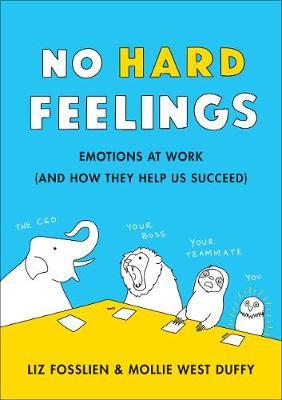

For example, a study by Kim Cameron, a professor at the University of Michigan’s Ross School of Business, found that organizations that discourage compassion and gratitude have higher staff turnover rates.

Would you rather work in an office where people say a cheery “hello” to one another in the hall, and share the occasional moment of joy or sadness? Or one where people appear enthusiastic at their desks but head off to the bathroom for a long, lonely cry.Ī healthy emotional culture in the workplace makes a difference. why teams of people who like horror movies work better together.how we’d rather break up with a partner than confront a work colleague and.why control is at the heart of staying motivated.In this summary of No Hard Feelings by Liz Fosslien and Mollie West Duffy, you’ll learn

And with the world of work ever more focused on interactions between teams and colleagues, it’s more important than ever to understand not only our own emotional needs, but those of our colleagues, bosses and juniors.

Humans are emotional beings, and we’d all lead more fulfilled working lives if we were able to be our authentic selves in the office, rather than emotionless automatons. Or the utter fury you feel when that jerk in marketing interrupts you for the fourth time that meeting. The thrill when your CEO offers rare words of praise on Slack. There’s the gnawing feeling in your gut when an email from your manager arrives at 8:00 p.m. This is unhelpful because the reality is that emotion is ever-present at work. And we discourage human displays of emotion in the office by stereotyping them as somehow unprofessional. We hold back from sharing our worries, stress and anxiety, for fear of being seen as weak. Sure, we pay lip service to the importance of soft skills, like communication, but we worry about appearing to be too soft. For some reason, too many people downplay the importance and impact of emotion at work.


 0 kommentar(er)
0 kommentar(er)
